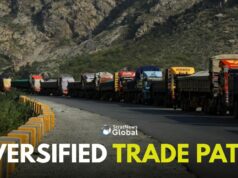The escalating trade tensions triggered by U.S. President Donald Trump’s tariff regime have left the global trading system reeling, with questions now being raised over whether the World Trade Organisation (WTO) can continue to function with Washington in open defiance of its rules.
Shishir Priyadarshi, former WTO Director and now President of the Chintan Research Foundation, said the tariffs, in place since April 2, have disproportionately hurt U.S. consumers, despite Trump’s repeated claims that “billions of dollars will flow in” from other countries.
Illustrating the impact, Priyadarshi noted with an example that an Indian shirt priced at $10, once subject to a 10% tariff, would sell for $11 in the U.S. compared to a Guatemalan shirt priced at $13.20. But under a 50% tariff on Indian goods, the Indian shirt would shoot up to $15, making the Guatemalan product more competitive. “In effect, it is the U.S. consumer who pays more,” he said.
The stakes for India are serious. A 50% tariff, Priyadarshi warned, could shave off 1% of GDP and lead to widespread job losses in export-oriented industries. He urged Indian industry to become more competitive and resilient, while also calling for broader economic reforms to weather the storm.
But the crisis extends beyond India. The former WTO official admitted the global trade body is under “extraordinary pressure,” describing it as “in the ICU” due to U.S. tariffs. Two options are now being debated: waiting out the Trump presidency in hopes of a reset, or forming a “WTO without the U.S.” where members continue to trade under agreed rules while dealing with Washington separately.
“Could you have a World Trade Organisation which doesn’t have the biggest trading nation in the world? That is hard to imagine,” Priyadarshi cautioned.
Even so, he said the turmoil could present an opportunity for overdue reforms in the WTO, offering the chance to reimagine a fairer, more resilient trading system.




